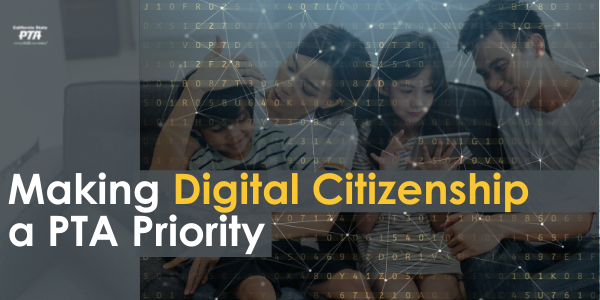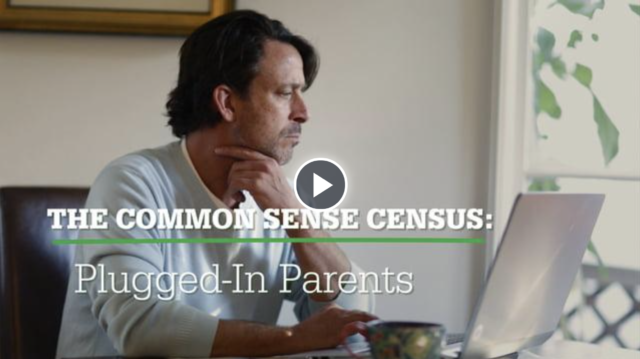By Mary Perry, California State PTA Communications Commission

How do we help families use technology responsibly for learning, creating, and participating in the larger community? That is the central question that educators, parents, and students are asked to think about during Digital Citizenship Week, which takes place from October 17-21 this year.
Why is Digital Citizenship important?
We live in a digital age and so do our kids. Parents share both positive attitudes about technology and a lot of concerns as well, according to a 2016 national survey conducted by Common Sense Media. This video captures that ambivalence and helps underscore the valuable contribution PTAs can make.

Digital Citizenship Topics to Share with Families
The focused attention to this issue only lasts a week, but your PTA and school can address Digital Citizenship any time. You can easily share specific tips and ideas with families throughout the school year, thanks to Common Sense Education. They have created a wealth of resources for families that are organized based on student grade levels, can be printed out, and are meant to be shared. You can use them as hand-outs at a meeting or provide them (with credit to Common Sense Education) in newsletters and social media. These were created to align with a classroom curriculum, but two of the categories are ideal for PTAs to share, independent of what your school is doing.
SEL [Social-Emotional Learning] in Digital Life Family Conversations – available in both English and Spanish, these are brief ideas for family conversations related to social-emotional learning (SEL) and technology. They’re grouped into grade spans (K-2, 3-5, 6-8, and 9-12) and are framed around the predominant themes used in educators’ growing interest and instruction around social-emotional learning:
- Self-awareness
- Self-management
- Responsible decision making
- Relationship skills
- Social awareness
Family Tips – available in multiple languages (including English, Spanish, Arabic, Chinese, Farsi, Korean, Russian, Tagalog, Urdu, and Vietnamese), these printer friendly pages are made for sharing. Versions for grades K-5 and 6-12 provide parenting tips related to the following topics:
- Media Balance & Well-Being
- Privacy & Security
- Digital Footprint & Identity
- Relationships & Communication
- Cyberbullying, Digital Drama, & Hate Speech
- News & Media Literacy
PTA and School Leaders Can Work Together
Creating a Digital Citizenship Campaign that is thoroughly planned and done in coordination with your school and/or school district is a bigger undertaking, but one that you may want to consider. As a PTA leader, you’ll do well to understand the needs and interests of both the families and educators at your school to decide whether a campaign around digital citizenship makes sense, what topics you might want to cover, and if this is an independent PTA activity or a school wide interest.
Plentiful resources are available, including an implementation guide that will walk you and your education leaders through how to make the campaign a success. Common Sense Education has also developed a toolkit that includes articles, videos, hand-outs, and ready-made presentations covering a range of Digital Citizenship topics.
Let us know how your PTA or school is sharing ideas about Digital Citizenship by sending a link or short note to communications@capta.org.